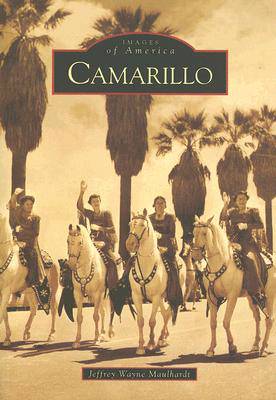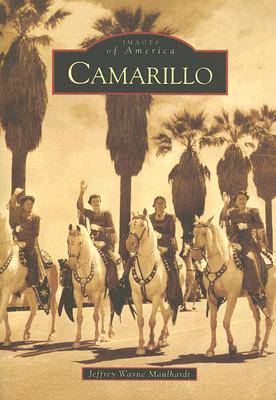
- Afhalen na 1 uur in een winkel met voorraad
- Gratis thuislevering in België vanaf € 30
- Ruim aanbod met 7 miljoen producten
- Afhalen na 1 uur in een winkel met voorraad
- Gratis thuislevering in België vanaf € 30
- Ruim aanbod met 7 miljoen producten
Zoeken
€ 34,95
+ 69 punten
Uitvoering
Omschrijving
Before Camarillo, there was Springville, and before Springville there were the Ranchos Los Posas, Calleguas, and Guadalasca. The evolution of these ranchos into the community that became the city of Camarillo is a California story of hardscrabble ranching replaced by dry farming, followed by success as an important point in the growth of the walnut and lima bean trades. The magnanimous Camarillo family left its surname, as well as a regionally famous line of white show horses, to the community. The city was also home to Camarillo State Hospital, which for generations was a West Coast mainstay for patients with mental health issues. Today Camarillo is a vibrant city of more than 75,000 people that retains the charms of both its Spanish and Mexican heritages.
Specificaties
Betrokkenen
- Auteur(s):
- Uitgeverij:
Inhoud
- Aantal bladzijden:
- 128
- Taal:
- Engels
- Reeks:
Eigenschappen
- Productcode (EAN):
- 9780738546582
- Verschijningsdatum:
- 1/07/2006
- Uitvoering:
- Paperback
- Formaat:
- Trade paperback (VS)
- Afmetingen:
- 182 mm x 237 mm
- Gewicht:
- 326 g

Alleen bij Standaard Boekhandel
+ 69 punten op je klantenkaart van Standaard Boekhandel
Beoordelingen
We publiceren alleen reviews die voldoen aan de voorwaarden voor reviews. Bekijk onze voorwaarden voor reviews.











